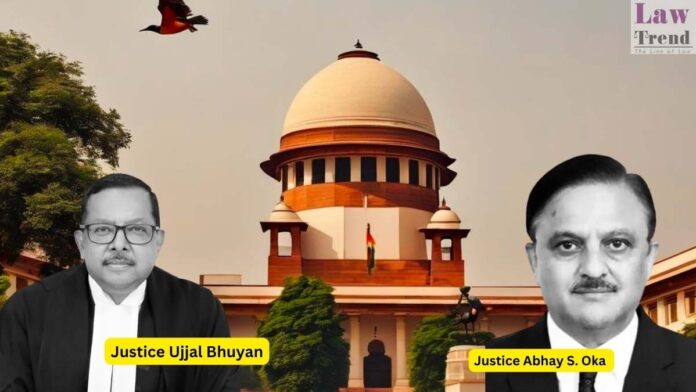The Supreme Court of India, in Ramu Appa Mahapatar vs. State of Maharashtra (Criminal Appeal No. 608 of 2013), has overturned the conviction of Ramu Appa Mahapatar, accused of murdering his live-in partner Manda, and set him free on the ground that the prosecution failed to establish his guilt beyond a reasonable doubt. The court
To Read More Please Subscribe to VIP Membership for Unlimited Access to All the Articles, Download Available Copies of Judgments/Order, Acess to Central/State Bare Acts, Advertisement Free Content, Access to More than 4000 Legal Drafts( Readymade Editable Formats of Suits, Petitions, Writs, Legal Notices, Divorce Petitions, 138 Notices, Bail Applications etc.) in Hindi and English.




